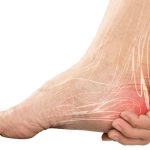Parkinson’s disease is a progressive nervous system disorder that puts a hold on your movement capabilities. Hence, it results in low levels of dopamine in the brain.
More than 10 million people worldwide are living with Parkinson’s disease. So, here comes the real question: what causes it, and what you can do to reduce its risk?
It is still unknown what exactly causes Parkinson’s disease but several factors like gene mutation and exposure to certain toxins may affect the risk of Parkinson’s disease. It is critical that we prevent the disease before symptoms arise Because there isn’t any known cure.
There are many ways and lifestyle changes that can help prevent Parkinson’s disease that you must try before things take an ugly turn.
Table of Contents
Limit the exposure to harmful toxins that are found in agricultural farms
Excessive exposure to some harmful toxins and chemicals are some of the major causes of Parkinson’s disease. For eg: Agricultural workers and farmers who are more exposed to toxic pesticides and herbicides have higher chances of PD than the rest of the population.
The severity of harmful effects of pesticides like paraquat can be determined by how thousands of Americans have filed Paraquat Parkinson’s lawsuit against Syngenta that continues to sell Paraquat under the name Gramoxone without warning users against the risk.
This is exactly why limiting the usage and exposure to such harmful toxins and chemicals are so important. So, make sure you keep on check on the kind of pesticides or herbicides that are being used in your farms.
Regular Exercise

Exercise isn’t just necessary to build strength or muscles. In fact, regular exercise also plays an important role in keeping your brain healthy by releasing chemicals such as dopamine and endorphins.
Various studies show that adults who participated in one hour of exercise at least five times a week in the course of one year have at least 51% lower risk of Parkinson’s disease than those with low levels of physical activity. Also, participation in competitive sports before 25 is also associated with the lower risks of PD.
In addition, regular exercise is also beneficial for someone who has been diagnosed with PD. Exercises that are good options include the following:
Yoga- Yoga can help to improve balance and increase flexibility, and it may have the same effects for people diagnosed with PD. It can improve the ability to walk and reduce tremors. Yoga can also help improve mood and help you sleep better.
Tai Chi– Tai Chi promotes coordination and balance. Reports have shown that regular stretches, resistance training, and tai chi can prevent Parkinson’s disease. Even the people who have moderate PD can be benefited from tai chi as it improves stability and balance.
Dance- Dance therapy is beneficial if you’re looking for something less structured. Dance therapy is great as it works for the entire body. It helps in improving coordination and balance.
Lifting weights– Weight training is another form of exercise that can be considered to avoid PD. Lifting weights help to build up endurance and muscle strength. However, people with advanced level Parkinson’s disease should avoid weight training.
Nutritional Supplements
You might have heard that the antioxidant coenzyme Q-10 or Coq10 promotes cell growth and maintenance. Some neurodegenerative disorders like Alzheimer’s and Parkinson’s are directly linked to deficiencies of Q-10 or Coq10.
A number of reports have reported that anyone who has been diagnosed with Parkinson’s disease can intake COQ10 supplements to slow down its advancement.
Balanced Diet

Eating a nutritional and balanced diet can significantly reduce the risk of Parkinson’s disease. A diet with plenty of fresh fruits, boiled vegetables, and whole-grain could be beneficial.
Here’s what you can do to maintain good overall health:
- Limit your alcohol intake
- Drink at least 8 glasses of water each day
- Try Mediterranean style diet
- Eat high-fiber foods like lentils, nuts, fruits, and vegetables
Caffeine consumption
Caffeine consumption can also reduce the risk of developing Parkinson’s disorder. Multiple studies have shown that those who intake 2-3 cups of caffeinated beverages have less incidence of developing Parkinson’s disease than those who don’t.
In Summary
Along with these, there are also some other lifestyle changes that can prevent Parkinson’s disease such as getting an adequate amount of sleep, reducing stress, and maintaining good overall health.
No matter if you are just looking for ways to prevent Parkinson’s disease or dealing with its symptoms, the above-discussed lifestyle changes can make it easier for you to deal with PD.








